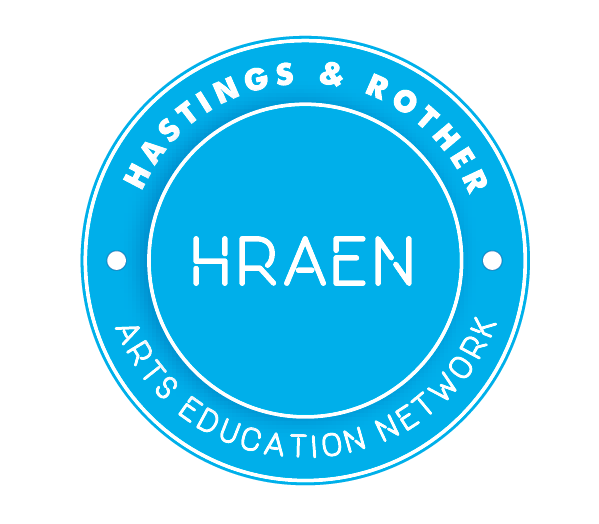|
Following 5 years of successful delivery, HRAEN is now poised to establish itself as a Charitable Incorporated Organisation and as part of this process wishes to develop a 5 year Business Plan and Funding Strategy to clearly set out the organisations aspirations. HRAEN therefore seeks to employ a consultant to develop a 5 year business plan with accompanying Funding Strategy.
3 Comments
Find your dramatic voice
Led by music director Stephen Higgins and director James Bonas these sessions give you the chance to explore drama and storytelling through singing and music – essential elements in the art of opera and musical theatre performance. Build your confidence and gain insights into how to give your best performance in an audition situation. No previous classical music or singing experience is required to take part. Workshops are taking place at Bexhill College. For more information and how to book please see our website: http://www.glyndebourne.com/education/take-part/young-talent-ages-9-30/glyndebourne-youth-opera/gyo-workshops-2/ Event Dates GYO1: Saturday 24 March, 10.00am – 4.00pm GYO2: Sunday 25 March, 10.00am – 4.00pm A symposium for headteachers and their curriculum leaders on 22 June 2018 What if Shakespeare could help your pupils find their voice and dramatically improve their literacy skills? The approaches we’ve developed with schools over more than a decade empower young people to bring complex language to life. They do this by approaching the text in the same way that our actors do in a professional rehearsal room: making language truly meaningful through investigation and performance. In-depth research shows that increased confidence with Shakespeare helps young people feel more engaged in their school, their learning and their community. This builds their resilience and confidence to take their place in the world. Both primary and secondary headteachers across the country are already seeing how these approaches accelerate the development of spoken and written language. They particularly help those pupils who find language difficult. Join our Symposium On 22 June 2018, we are hosting a symposium for headteachers and curriculum leaders who want to: • Hear evidence from schools who have raised standards by embedding these approaches in a knowledge-rich curriculum • Experience rehearsal room approaches to Shakespeare • Find out how this work has been commended by Ofsted and underpinned by research conducted by the University of Nottingham and the University of Warwick • Hear from IVE and Headteachers about how rehearsal room approaches can strengthen classroom practice across the curriculum • Take away practical ideas and actions to implement in school This symposium is delivered in partnership with IVE, a social enterprise that is working to ensure a more creative future for businesses, teachers and young people. It supports the development of creativity as a transferable skill to improved employability and productivity. They aim to inspire the next generation of creative and culturally literate entrepreneurs. DATE Friday 22 June 2018, 9.30am-5pm VENUE Royal Shakespeare Theatre, Stratford-upon-Avon Cost Tickets £100 RSC Education Members / £110 non-Members Early Bird Offer Book two places from the same school before 31 March 2018 for just £65 per person RSC Education Members / £75 non-Members Plus add on a ticket to see the evening performance of Macbeth for just £39.50 when booking with your conference ticket. Symposium ticket includes free shuttlebus between Stratford-upon-Avon and Warwick Parkway Railway Stations and the Royal Shakespeare Theatre – see details below. Plus add on a ticket to see the evening performance of Macbeth for £39.50 when booking your symposium ticket. How to book Please email [email protected] or call the Education Ticket Hotline on 01789 403434. This line is answered by a specialist education team available from 8.30am-5pm, Monday to Friday during term time. FROM THE NATIONAL THEATRE:-
Overview of Let’s Play The programme seeks to:
It also supports the ambition of Artsmark and Arts Award to bring the arts and cultural learning to the forefront of children and young people’s lives. The programme includes:
We will work with a minimum of 700 schools over the next 3 years. The genesis of Let’s Play
Where we are now
Lorna McGinty Let’s Play Project Manager National Theatre Learning T: 020 7452 3370 [email protected] nationaltheatre.org.uk/learning Arts education professionals and politicians met this week as a first step to tackling the structural problems causing the arts to be neglected in many schools.
Lack of clarity by schools inspector Ofsted on its expectations for the arts in the primary school curriculum is believed to be a significant contributor to the de-prioritising of arts activities in many schools. A meeting of arts education professionals and politicians, hosted by left-leaning think tank the Fabian Society on Tuesday, identified this and a wide range of other factors as compounding the problems arising from the squeeze on school budgets. The event marked the start of a new research initiative, led by the Society, that will examine access to the arts by primary age children. Structural problemsChaired by Shadow Minister for Education with responsibility for schools, Mike Kane MP, delegates reflected on the causes of a “deeply shocking landscape” of diminishing arts provision in primary schools. This was attributed to structural problems in the education system, including:
Financial constraints The funding squeeze on schools is also seen as having an impact on arts provision in several ways. Access to arts events and artists in schools is being withdrawn as budgets are cut and support from local education authorities is diminishing due to council funding cuts. A sports premium is available to primary schools to “make additional and sustainable improvements to the quality of PE and sport”, but there is no arts equivalent of this funding. An Ofsted publication showing how pupil premium funding for disadvantages pupils can be most effectively spent offers no endorsement of arts activities, and Government guidance to schools on how to spend this money reflects this. Measurement Delegates expressed concerns that, while the attrition rate of arts provision in secondary schools can be measured by looking at the numbers of subject specialist teachers in employment and the take-up of arts GCSEs and A levels by pupils, the ebbing away of arts provision in primaries is far less visible. On the basis that “what gets measured gets taught”, several delegates called for Ofsted to provide more concrete guidelines for primary schools to deliver the arts. Ofsted has no national lead for the visual and performing arts, but “is currently in the process of appointing”. AP asked how Ofsted goes about setting parameters for assessing the quality of arts provision in primary schools. A spokesperson said: “Inspectors do not routinely report on individual subjects, but they do look at whether schools offer a broad and balanced curriculum… which includes a range of subjects and artistic learning.” “Inspectors will also consider how well the school supports the formal curriculum with extra-curricular opportunities for pupils to extend their knowledge and understanding in a range of artistic, creative and sporting activities.” Asked whether the level of arts provision in a primary school has an influence on Ofsted ratings, they replied: “Where inspectors identify that a school is not conforming to statutory requirements in relation to the curriculum being offered, this will be reflected in the inspection findings and the relevant judgements.” Research The catalyst for the Fabian Society’s research was anecdotal evidence gathered during the 2017 general election campaign – particularly from teachers – of the decline in access to the arts for primary age students. Their project aims to provide definitive evidence on the impact that school cuts have had on primary age children’s access to the arts, to explore the consequences for children and set out a series of recommendations to policy makers to remedy the problem. A literature review, a survey of providers of children’s arts and polling of primary school teachers will address three research questions:
The final objective of the report, which will be published later this year, is to make a series of recommendations to policy makers which the Society hopes will be adopted by all political parties. Children & the Arts, together with the Musicians’ Union, is supporting the Fabian Society with the project. Programme Director Emma Moorby told AP: “Every child has the right to a broad, rich and inspiring education that includes the arts. This is particularly important during the formative years of primary school education... Some children have a rich diet of opportunities including access to the arts but many others do not. So often it is a postcode lottery that decides who benefits and who misses out and that’s why we work hard to create equal access for all. “We welcome the research being undertaken by The Fabian Society and very much look forward to seeing what we can achieve together based on the results.” Author(s): Liz Hill |
These updates are provided by the HRAEN steering group and comprise information we feel will be most useful to the HRAEN members. Please note that though we want to spread the word about creative activity much of what appears here has not been quality checked by HRAEN and consequently HRAEN does not systematically endorse the projects on this page.
Archives
May 2022
CATEGORIES
All Arts Award Arts Champions Arts Council England Artswork CPD Creative Teaching Culture Shift Dear Serge De La Warr Pavilion East Sussex Arts Award Film Education Fun Palaces Hastings Borough Council Hastings Museum & Art Gallery Hastings Pier HRAEN Jerwood Gallery Pallant House Gallery Rother District Council Screen South South East Bridge The Pier HUB White Rock Theatre |
||||||




 RSS Feed
RSS Feed